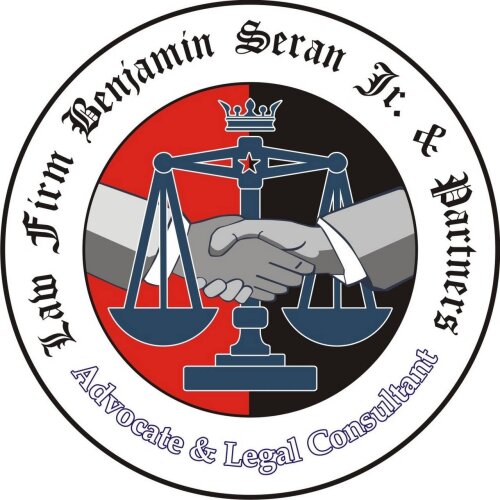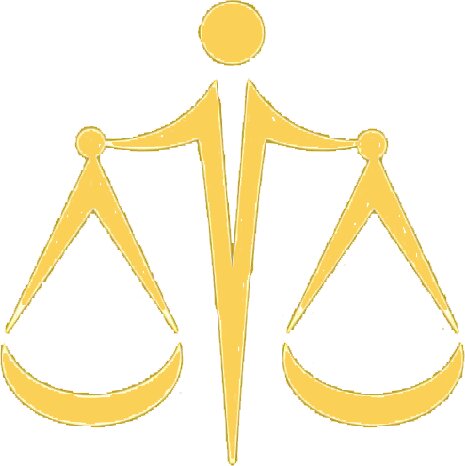Best General Litigation Lawyers in Indonesia
Share your needs with us, get contacted by law firms.
Free. Takes 2 min.
Or refine your search by selecting a city:
List of the best lawyers in Indonesia
About Litigation Law in Indonesia
Litigation in Indonesia involves the legal process where parties in a dispute present their arguments for a decision to be made by the court. This process is part of the broader Indonesian legal system, which is influenced by civil law traditions and rooted in local customs and regulations. The Indonesian court system deals with various types of cases, including civil, criminal, administrative, and constitutional matters. Litigation can be complex and time-consuming, typically involving several stages, including initial filings, pre-trial procedures, trial proceedings, and potential appeals.
Why You May Need a Lawyer
There are many situations where individuals or businesses may require legal help with litigation. These include business disputes, contractual issues, family-related matters such as divorce or inheritance, employment disagreements, property disputes, and other civil or criminal matters. A lawyer can help navigate the complex Indonesian legal system, ensure that proper procedures are followed, provide strategic advice, represent parties in negotiations or court, and help achieve the most favorable outcome possible.
Local Laws Overview
The Indonesian legal framework is governed by a mix of national laws, regional regulations, and customary laws. Key aspects relevant to litigation include:
- Civil Code: Governs personal matters, contracts, torts, and property law.
- Penal Code: Outlines criminal offenses and penalties.
- Civil Procedure Code: Details the procedures for civil litigation, including filing lawsuits, court hearings, and judgments.
- Supreme Court Regulations: Provide guidance on procedural rules across Indonesia’s judicial system.
- Customary Law (Adat Law): May apply, particularly in regions with strong traditional communities.
Frequently Asked Questions
What is the first step in starting litigation in Indonesia?
The first step is usually consulting with a legal professional to evaluate the details of your case and preparing an initial complaint, which is then filed with the relevant district court.
How long does a litigation process typically take in Indonesia?
The duration can vary widely depending on the complexity and type of the case. Some cases may resolve in a few months, while others can take several years, especially if appeals are involved.
What are the costs associated with litigation?
Costs can include court fees, attorney fees, and other related expenses. These can vary greatly based on the specifics of the case and the legal representation chosen.
Can I settle outside of court in Indonesia?
Yes, parties are encouraged to seek amicable settlements through negotiation or mediation at any stage in the litigation process.
Is it mandatory to have a lawyer for litigation?
It is not mandatory, but it is highly advisable given the complexities of Indonesian law and court procedures.
Can foreigners litigate in Indonesian courts?
Yes, foreigners can participate in lawsuits in Indonesia, but they must adhere to local laws, and it is beneficial to work with a local attorney.
What is the appeal process in the Indonesian court system?
Decisions can typically be appealed to a higher court, such as the High Court and subsequently the Supreme Court, under certain conditions and within specified timeframes.
What is the role of the Supreme Court in Indonesia?
The Supreme Court serves as the highest judicial authority, overseeing legal interpretations and ensuring consistent application of the law across the country.
Does Indonesia recognize class-action lawsuits?
Yes, Indonesia recognizes class actions under certain conditions, particularly in cases relating to consumer protection and environmental law.
How are foreign judgments treated in Indonesia?
Foreign judgments are not automatically recognized or enforceable in Indonesia and typically require a separate lawsuit to be filed to seek recognition or enforcement.
Additional Resources
Several resources can provide further assistance or information about litigation in Indonesia:
- Indonesian Bar Association (PERADI): Offers directories and advice regarding legal representation.
- Ministry of Law and Human Rights: Provides information on legal processes and regulations.
- Legal Aid Organizations: Offer assistance to those who cannot afford private legal support.
- Judicial Commission of Indonesia: Monitors the conduct of judges and can handle grievances related to judicial processes.
Next Steps
If you believe you require legal assistance with litigation in Indonesia, consider the following steps:
- Consult with Legal Professionals: Contact a lawyer or a legal advisor to discuss your case specifics and understand your legal options.
- Gather Documentation: Prepare and organize any documents or evidence pertinent to your case.
- Consider Alternative Dispute Resolution: Assess if negotiation or mediation might be viable options before pursuing litigation.
- Engage Legal Representation: If you decide to proceed with litigation, officially hire a lawyer to represent you in the process.
- Stay Informed: Continuously communicate with your legal representative to stay updated on proceedings and upcoming actions.
Lawzana helps you find the best lawyers and law firms in Indonesia through a curated and pre-screened list of qualified legal professionals. Our platform offers rankings and detailed profiles of attorneys and law firms, allowing you to compare based on practice areas, including General Litigation, experience, and client feedback.
Each profile includes a description of the firm's areas of practice, client reviews, team members and partners, year of establishment, spoken languages, office locations, contact information, social media presence, and any published articles or resources. Most firms on our platform speak English and are experienced in both local and international legal matters.
Get a quote from top-rated law firms in Indonesia — quickly, securely, and without unnecessary hassle.
Disclaimer:
The information provided on this page is for general informational purposes only and does not constitute legal advice. While we strive to ensure the accuracy and relevance of the content, legal information may change over time, and interpretations of the law can vary. You should always consult with a qualified legal professional for advice specific to your situation.
We disclaim all liability for actions taken or not taken based on the content of this page. If you believe any information is incorrect or outdated, please contact us, and we will review and update it where appropriate.
Browse general litigation law firms by city in Indonesia
Refine your search by selecting a city.















